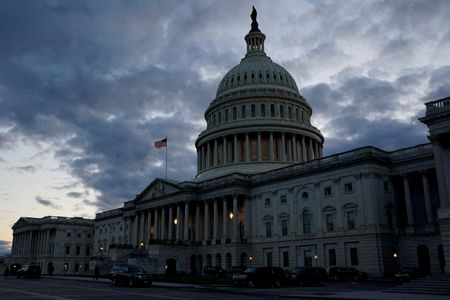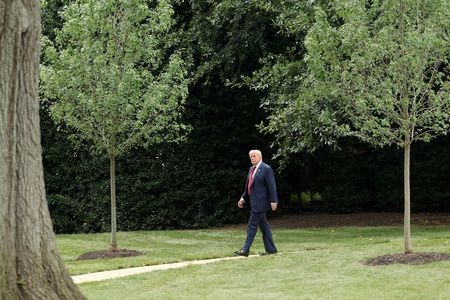By Patricia Zengerle
WASHINGTON (Reuters) -Half of the U.S. Senate – 25 Republicans and 25 Democrats – joined together on Tuesday to introduce sanctions that would be imposed on Russia if it refuses to engage in good faith negotiations for peace with Ukraine.
The lead sponsors of the legislation, Republican Senator Lindsey Graham and Democratic Senator Richard Blumenthal, said it would impose primary and secondary sanctions against Russia and entities supporting Russian aggression in Ukraine if Moscow does not engage in talks, or if it initiates another effort undermining Ukraine’s sovereignty after any peace deal.
The bill is a rare example of bipartisanship in the bitterly divided U.S. Congress, and comes as President Donald Trump has appeared to be growing increasingly impatient with what he has suggested might be foot-dragging over a wider agreement with Moscow to end the war.
“The sanctions against Russia require tariffs on countries who purchase Russian oil, gas, uranium and other products. They are hard hitting for a reason,” the two senators said in a statement.
“The dominating view in the United States Senate is that Russia is the aggressor, and that this horrific war and Putin’s aggression must end now and be deterred in the future,” they said.
While many members of Congress from both parties have strongly supported Ukraine as it has fought Russian invaders, an increasing number of Trump’s closest Republican allies have grown cooler since his party took control of the House of Representatives two years ago, and then the White House and Senate in January.
Since beginning his second term on Jan. 20, Trump had taken a more conciliatory stance towards Russia that unnerved Washington’s European allies as he tried to broker an end to the conflict in Ukraine, now in its fourth year.
Companion legislation is being introduced in the House of Representatives, also with the support of both Republicans and Democrats.
Backers of the bill say that it would pass with overwhelming support in both chambers if Congress’ Republican leaders allow a vote.
There was no immediate word on when a vote might take place.
(Reporting by Patricia Zengerle; Editing by Sandra Maler)











